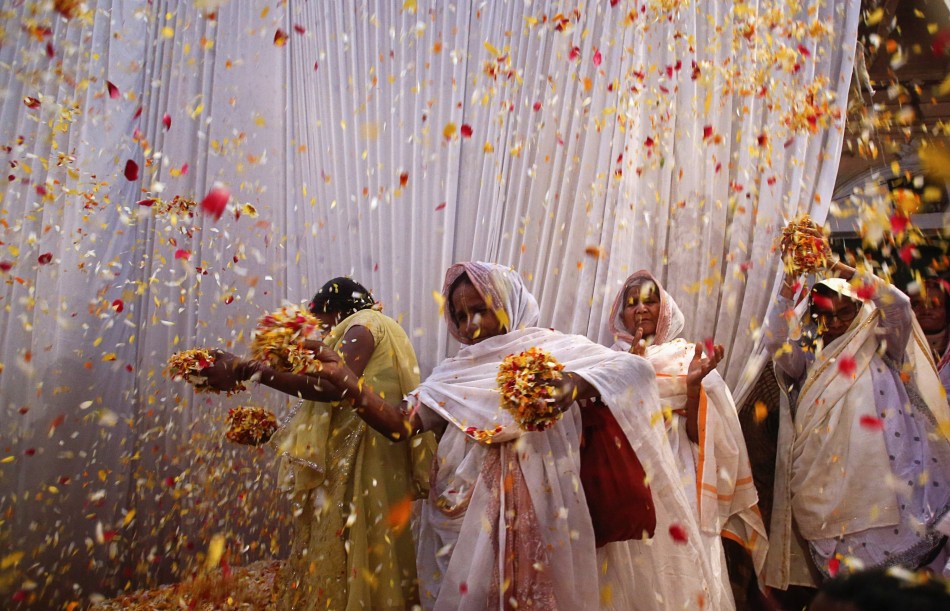India: Vrindavan Widows Celebrate Holi for First Time [PHOTOS]
Widows in Vrindavan, a small religious town in northern India, celebrated the colourful Hindu spring festival of Holi for the first time.
Breaking a long tradition, more than 800 widows, who generally do not participate in any festivities, came forward to sing and dance.
"Vrindavan Holi is an effort to free widows from the shackles of age-old tradition. Not only will the widows play Holi, they will also participate in cultural programmes," said Bindeshwar Pathak, chief of Sulabh International, which organised the event.
The widows played with other widows turning the event into a riot of colours.
Although they have been observing the festival for decades, until this year, they have not participated in the celebrations due to the taboo attached to them.
"We would watch men and women play Holi from the windows of our ashram. The celebrations of the town are legendary," Pushpa Adhikari, a widow living in Vrindavan for 17 years, told the Times of India.
The event, part of a multi-pronged approach, was organised to bring the widows into the mainstream of society.
Sulabh has been tasked to keep a tab on the status of widows in the town, by the Supreme Court of India.
Many of the Vrindavan women lost their husbands when they were quite young. It has been widely documented that they lead a miserable life, with no money, no proper clothes or food and lack healthcare.
Quite a few of them are said to hail from well-off families but have been shunned by their near and dear ones.
"When Lal Bahadur Shastri [former Indian prime minister] came to Calcutta, the streets were full of flowers. After that day, I'm seeing so many flowers for the first time," said an elderly woman who was unable to participate in the event.









© Copyright IBTimes 2024. All rights reserved.






